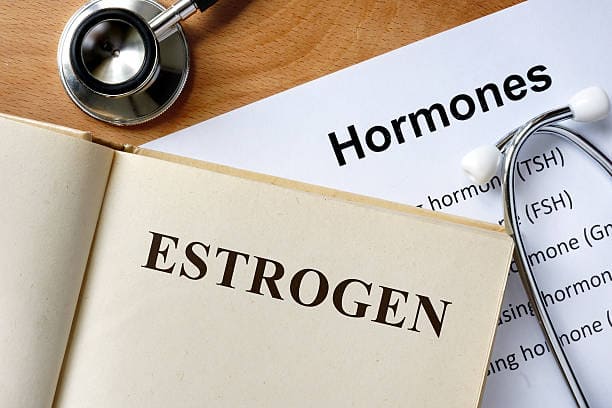Understanding your menstrual cycle is crucial for reproductive health and overall well-being. It’s more than just a monthly inconvenience; it’s a vital sign of reproductive health and overall wellness. However, there are several lesser-known facts about periods that many people may not be aware of. In this article, we’ll delve into five surprising aspects of menstruation that you may find enlightening (Secrets of Your Period Uncovered).
Definition and Phases of the Menstrual Cycle
The menstrual cycle refers to the monthly series of changes a woman’s body goes through in preparation for a possible pregnancy. It typically lasts about 28 days, though it can vary from person to person. The phases include menstruation, the follicular phase, ovulation, and the luteal phase.
Hormonal Changes During the Menstrual Cycle
Throughout the menstrual cycle, hormones such as estrogen and progesterone rise and fall, orchestrating the various stages of the cycle. These hormonal fluctuations drive the shedding of the uterine lining during menstruation, the release of an egg during ovulation, and the preparation of the uterine lining for potential implantation.
Components of Menstrual Blood
Menstrual blood isn’t just blood; it’s a combination of blood, uterine tissue, cervical mucus, and vaginal secretions. The exact composition may vary from woman to woman and can even change throughout the course of a single menstrual cycle.
Normal Range of Menstrual Blood Loss
On average, women lose about 30-40 milliliters of blood during each menstrual cycle. However, what’s considered a “normal” amount can vary widely from person to person. Paying attention to your own body’s patterns can help you determine what’s normal for you.
Menstrual Symptoms and Variations
Common Menstrual Symptoms
While some women experience relatively mild menstrual symptoms, others may suffer from more severe pain, bloating, fatigue, and mood swings. These symptoms can vary from month to month and may be influenced by factors such as stress, diet, and overall health.
Factors Affecting Menstrual Variation
Various factors can affect the regularity and intensity of menstrual symptoms, including hormonal imbalances, underlying health conditions, lifestyle factors, and genetics. Understanding these factors can help women better manage their menstrual health.
Importance of Proper Menstrual Hygiene
Maintaining proper menstrual hygiene is essential for preventing infections and promoting overall health and well-being. Using clean and appropriate menstrual products, changing them regularly, and practicing good genital hygiene can help reduce the risk of complications.
Tips for Maintaining Menstrual Health
- Choose menstrual products that suit your needs and preferences, whether it’s pads, tampons, menstrual cups, or period panties.
- Change your menstrual products regularly to prevent bacterial overgrowth and unpleasant odors.
- Practice good hygiene by washing your genital area regularly with mild soap and water, avoiding harsh chemicals or scented products.
- Stay hydrated, eat a balanced diet, and get regular exercise to support overall menstrual health and well-being.
- Listen to your body and seek medical attention if you experience severe or unusual menstrual symptoms, such as excessive bleeding, severe pain, or irregular periods.
5 Secrets of Your Period Uncovered
Pregnancy During Your Period: Is It Possible?
Contrary to popular belief, menstruation does not guarantee immunity against pregnancy. While the likelihood of conception during your period is lower compared to other times in your cycle, it’s not impossible. Sperm can survive in the female reproductive tract for several days, waiting for the egg to be released. If ovulation occurs shortly after your period, there’s a chance that sperm deposited during period sex could fertilize an egg, resulting in pregnancy. Therefore, relying solely on the timing of your period as a form of birth control is not a foolproof method.
Pill bleeding vs. natural menstruation
Many individuals who use hormonal birth control methods such as the pill experience withdrawal bleeding during their placebo week. However, this bleeding is not the same as a natural period. The bleeding that occurs while on hormonal contraceptives is often lighter and shorter in duration than a typical period. It’s simply a result of the sudden drop in hormone levels when you stop taking active pills. This withdrawal bleeding is medically termed as “breakthrough bleeding” or “withdrawal bleeding” and doesn’t indicate ovulation or shedding of the uterine lining in the same way as a natural period.
Period’s Journey: From First Flow to Final Farewell
As you move through different stages of life, from adolescence to adulthood and eventually menopause, your period undergoes various changes. During adolescence, it’s common for periods to be irregular as the body adjusts to hormonal fluctuations. In adulthood, factors such as stress, diet, and lifestyle can influence the regularity and characteristics of your period. Additionally, as you approach menopause, hormonal shifts lead to changes in menstrual patterns, eventually culminating in the cessation of periods altogether. Understanding these changes and seeking medical advice when necessary is essential for maintaining menstrual health.
Beyond Pads and Tampons: Exploring Period Options
While tampons and pads are the most commonly used menstrual products, they’re not the only options available. Menstrual cups, reusable cloth pads, and period panties are gaining popularity as eco-friendly and cost-effective alternatives. Insertion of Menstrual cups, made of medical-grade silicone or latex, into the vagina to collect menstrual blood. You can wear them for up to 12 hours. Reusable cloth pads are washable and users can use them multiple times, thereby reducing waste and environmental impact. Period panties offer leak-proof protection without requiring additional menstrual products since they are absorbent underwear specifically designed for this purpose. Exploring these alternatives can help you find the best option for your lifestyle and preferences.
Understanding the Complexities of PMS
Premenstrual syndrome (PMS) refers to a combination of physical and emotional symptoms that occur in the days leading up to menstruation. While PMS is a well-recognized phenomenon, its exact cause remains somewhat elusive. Researchers believe that hormonal fluctuations, neurotransmitter imbalances, and sensitivity to changes in estrogen and progesterone levels contribute to PMS symptoms. However, the underlying mechanisms are not fully understood. Additionally, the severity and duration of PMS symptoms can vary greatly among individuals. Managing PMS often involves a combination of lifestyle changes, dietary modifications, and sometimes medication to alleviate symptoms and improve quality of life.
In conclusion, understanding the intricacies of your period can empower you to make informed decisions about your reproductive health and well-being. From debunking myths about fertility and birth control to exploring alternative menstrual products and managing PMS, there’s much to learn about this natural aspect of womanhood. By staying curious and informed, you can navigate your period with confidence and ease.

